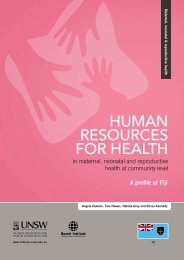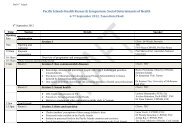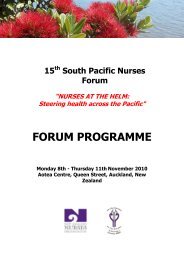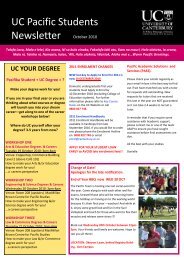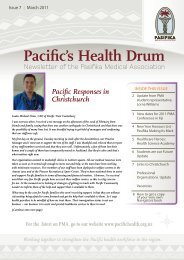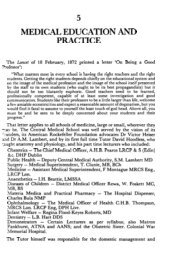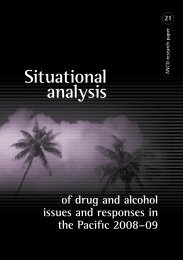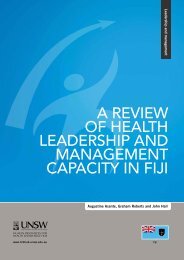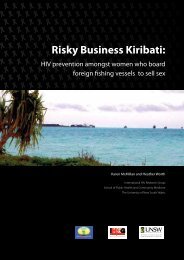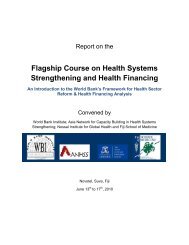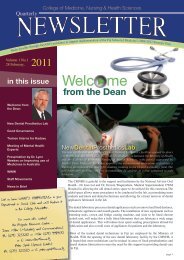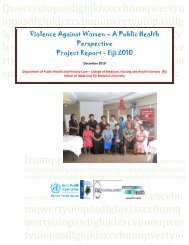rp21 situational analysis - Pacific Health Voices
rp21 situational analysis - Pacific Health Voices
rp21 situational analysis - Pacific Health Voices
Create successful ePaper yourself
Turn your PDF publications into a flip-book with our unique Google optimized e-Paper software.
Situational <strong>analysis</strong> of drug and alcohol issues and responses in the <strong>Pacific</strong><br />
184<br />
16.2 Drug and alcohol<br />
overview<br />
Tuvalu was not included in the 2004–05<br />
<strong>situational</strong> <strong>analysis</strong> of drug issues and responses<br />
in the region. However, a delegate<br />
from Tuvalu participated in the 2006 PDARN<br />
meeting. A key informant noted that a recent<br />
research report surveying 127 youths on risk<br />
behaviours included data collection on drug<br />
and alcohol use patterns. Just over 41 per<br />
cent of respondents, mainly male, reported<br />
consuming alcohol, with over half of those<br />
consuming more than once a week. Amounts<br />
per session varied from 1 to 24 cans (average<br />
number of drinks is four cans, equivalent to<br />
a ‘standard can of beer’). Only 15 of the surveyed<br />
youths reported using marijuana and<br />
none reported using heroin, cocaine, speed<br />
or ice. Approximately 30 reported using the<br />
Fijian variety of kava (yagona). 897<br />
Occasional cases of cannabis being smuggled<br />
into Tuvalu from Fiji are uncovered,<br />
but very little other illicit drug use is<br />
reported. 898 Tuvalu is not a signatory to any<br />
of the counter- narcotics conventions. 899<br />
The Ministry of <strong>Health</strong> is currently finalising<br />
a Demographic <strong>Health</strong> Survey which<br />
includes data on drug, alcohol and tobacco<br />
use. No reported judgments related to drug<br />
or alcohol cases are available for the period<br />
1987–2008. 900 Tuvalu has an Alcohol and<br />
Liquor Board Committee.<br />
16.3 Illicit drug trends<br />
The UNGASS 2008 report did not identify<br />
any injecting drug use in Tuvalu, and therefore<br />
no interventions. Seafarers are identified<br />
as a high-risk group, but the reported risk is<br />
associated with alcohol. 901<br />
897 Key contact questionnaire, January 2009. Note: Fijian kava, commonly known as yaquona, is<br />
also known as yagona, as described by the key informant for Tuvalu.<br />
898 Ibid.<br />
899 R. McCusker (2006), Transnational Crime in the <strong>Pacific</strong> Islands: real or apparent danger? Trends &<br />
Issues in Crime and Criminal Justice, no.308. Canberra: Australian Institute of Criminology.<br />
900 Tuvalu legal cases, reported on the <strong>Pacific</strong> Islands Legal Information Institute website, available<br />
at: (accessed March 2009).<br />
901 Tuvalu National AIDS Committee (2008), UNGASS 2008 Country Progress Report: Tuvalu<br />
(reporting period January 2006–December 2007). New York: UN General Assembly Special<br />
Session on HIV/AIDS.



